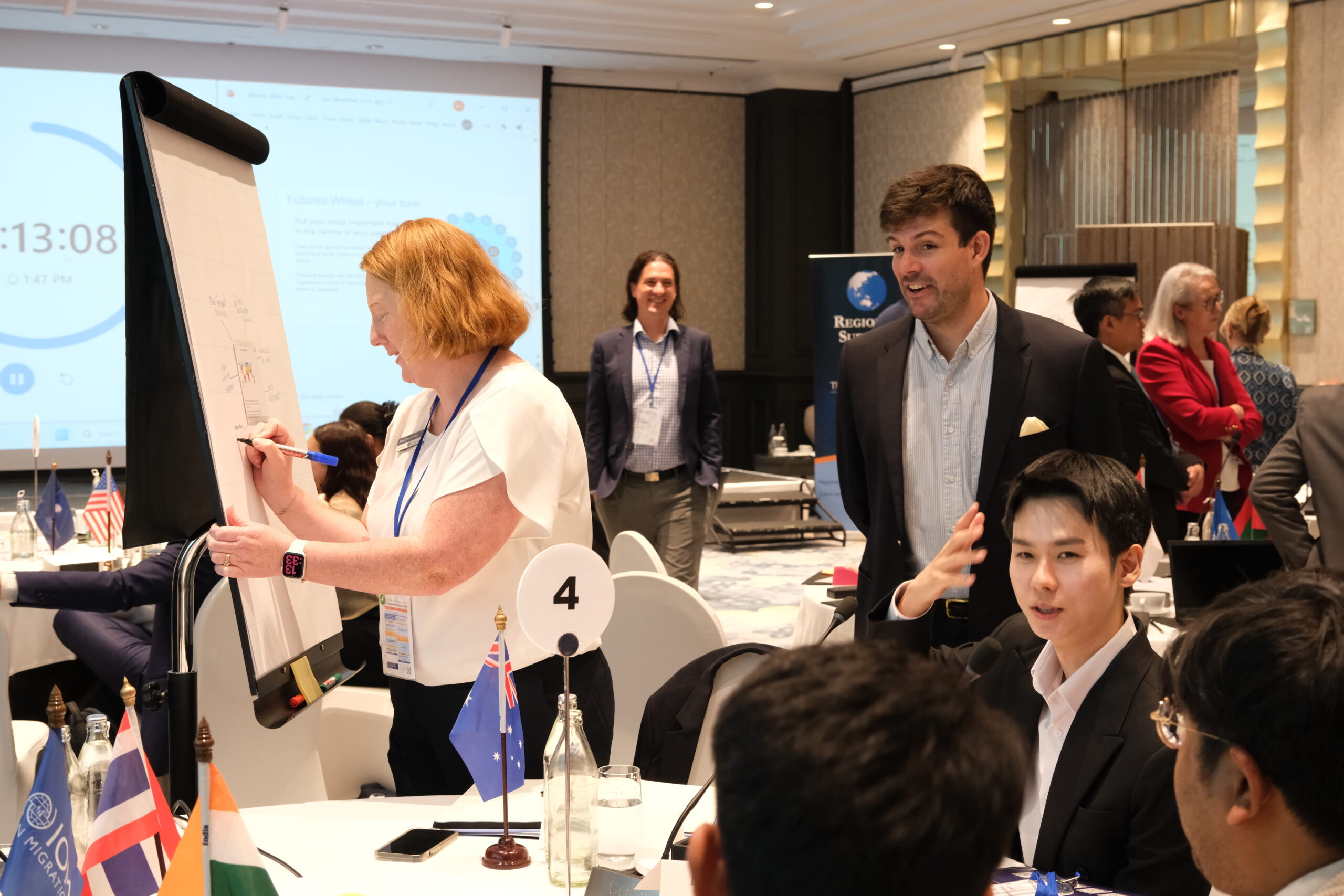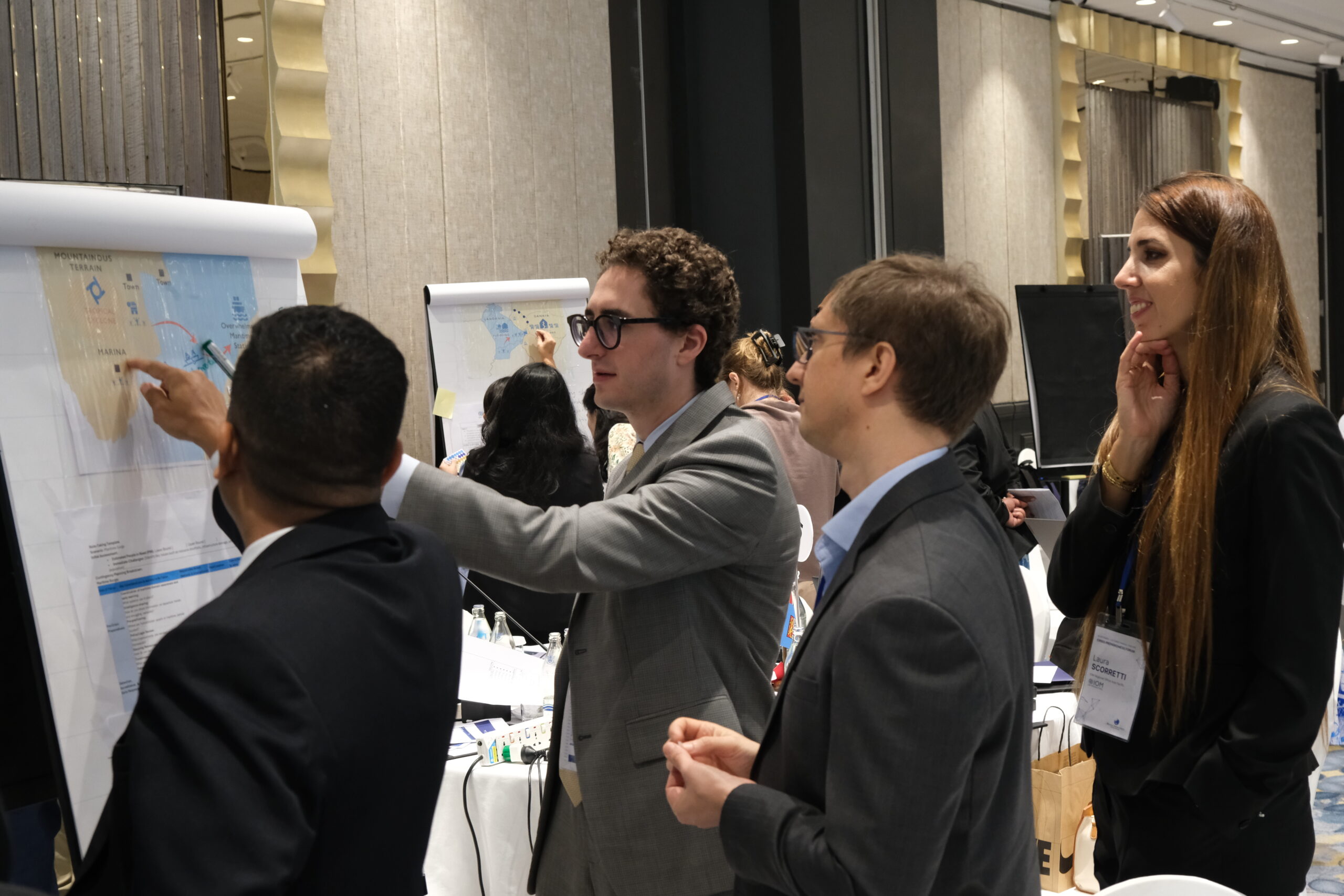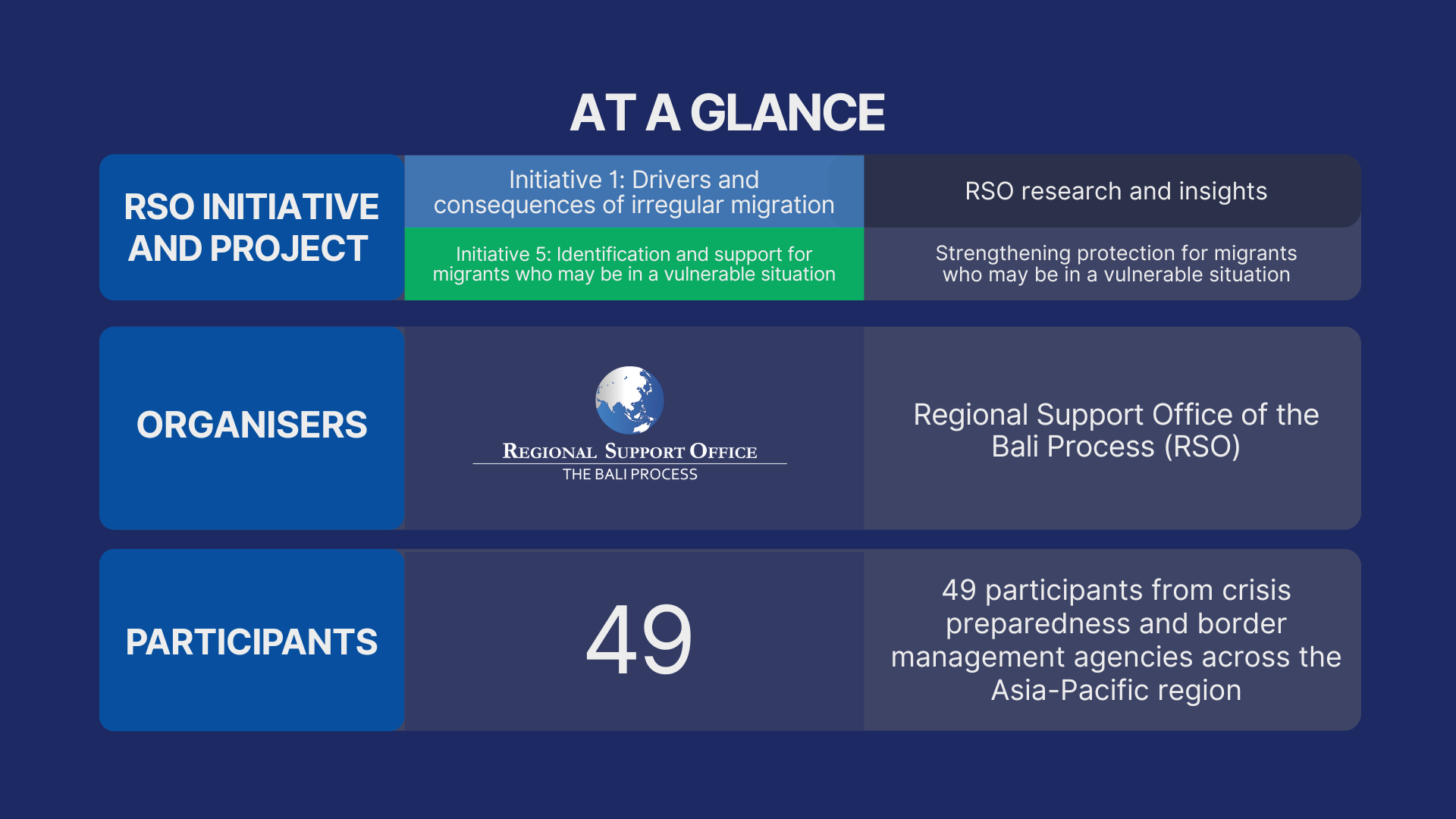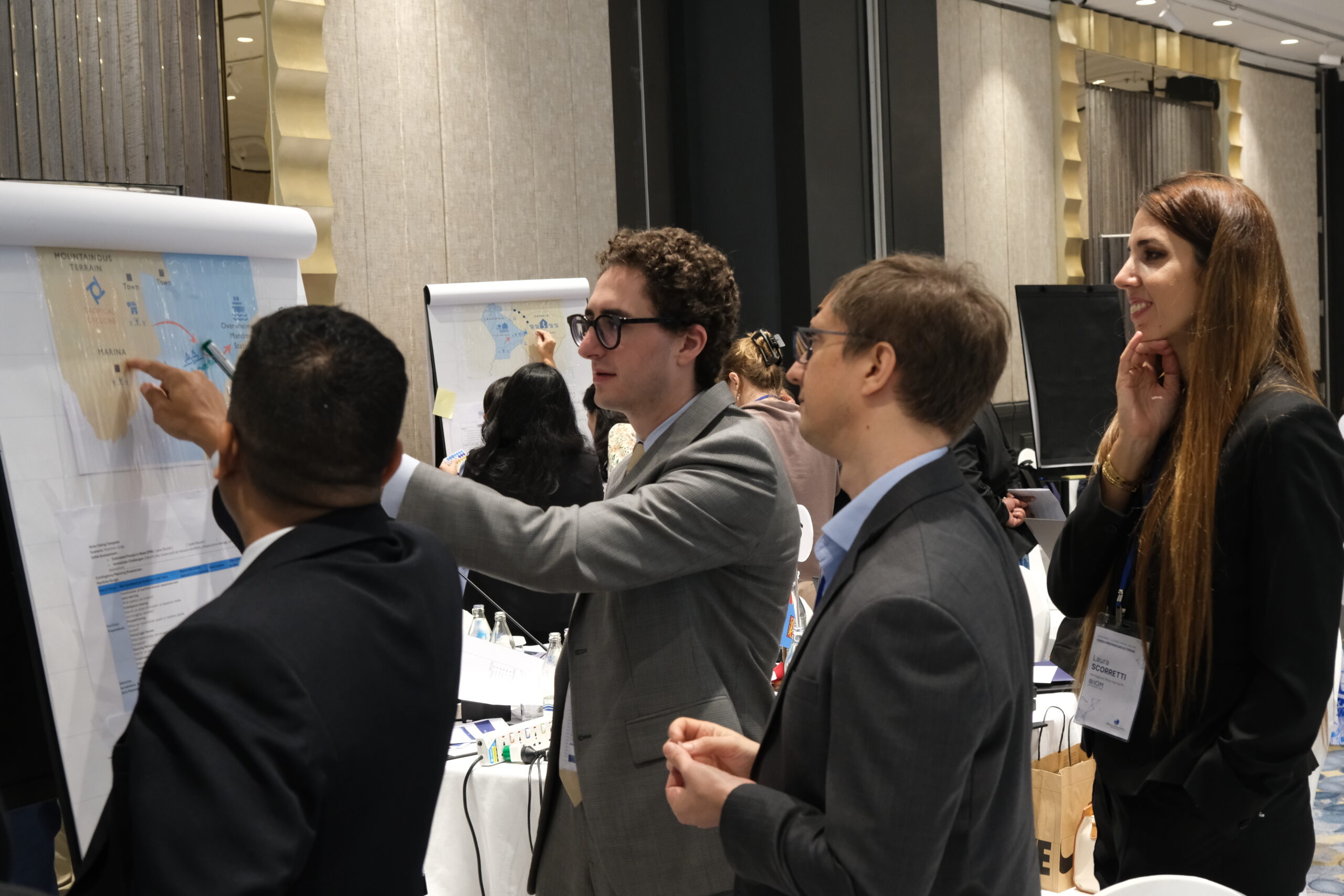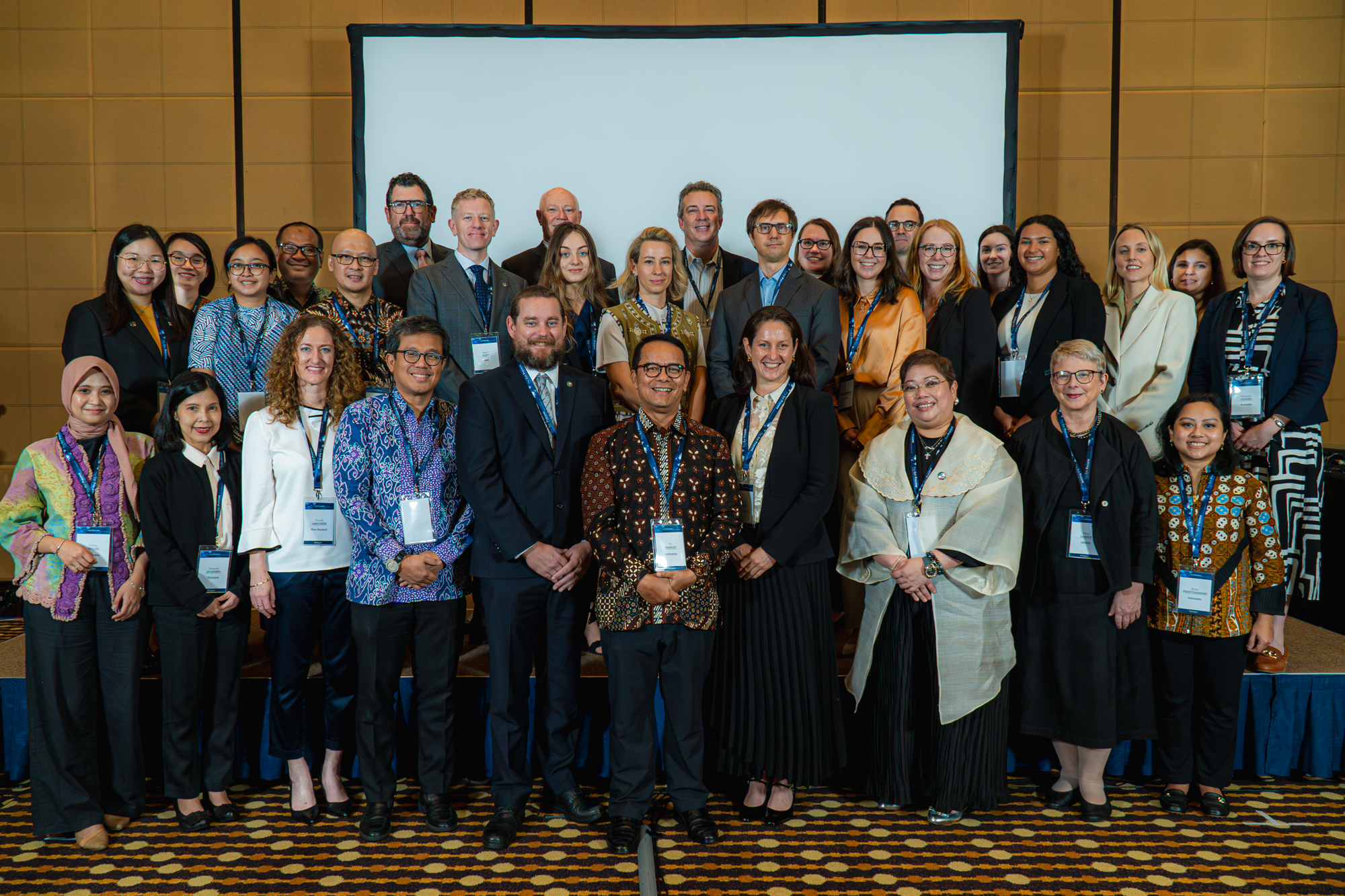30 September – 1 October 2025 • Bangkok, Thailand
The Asia Pacific is the world’s most disaster-prone region, home to seven of the fifteen countries most at risk of disaster according to the World Risk Index 2024. In 2024, over 24 million disaster-related displacements occurred across the region, an 88 per cent rise from the year before, according to the Internal Displacement Monitoring Centre. Climate extremes, economic inequality, and political instability are intersecting pressures that accelerate displacement and irregular migration, and test governments’ ability to act early and cohesively across agencies. Bali Process Members are facing realities of growing pressures across emergency and response services, border management and security and sustaining essential services when movements surge.
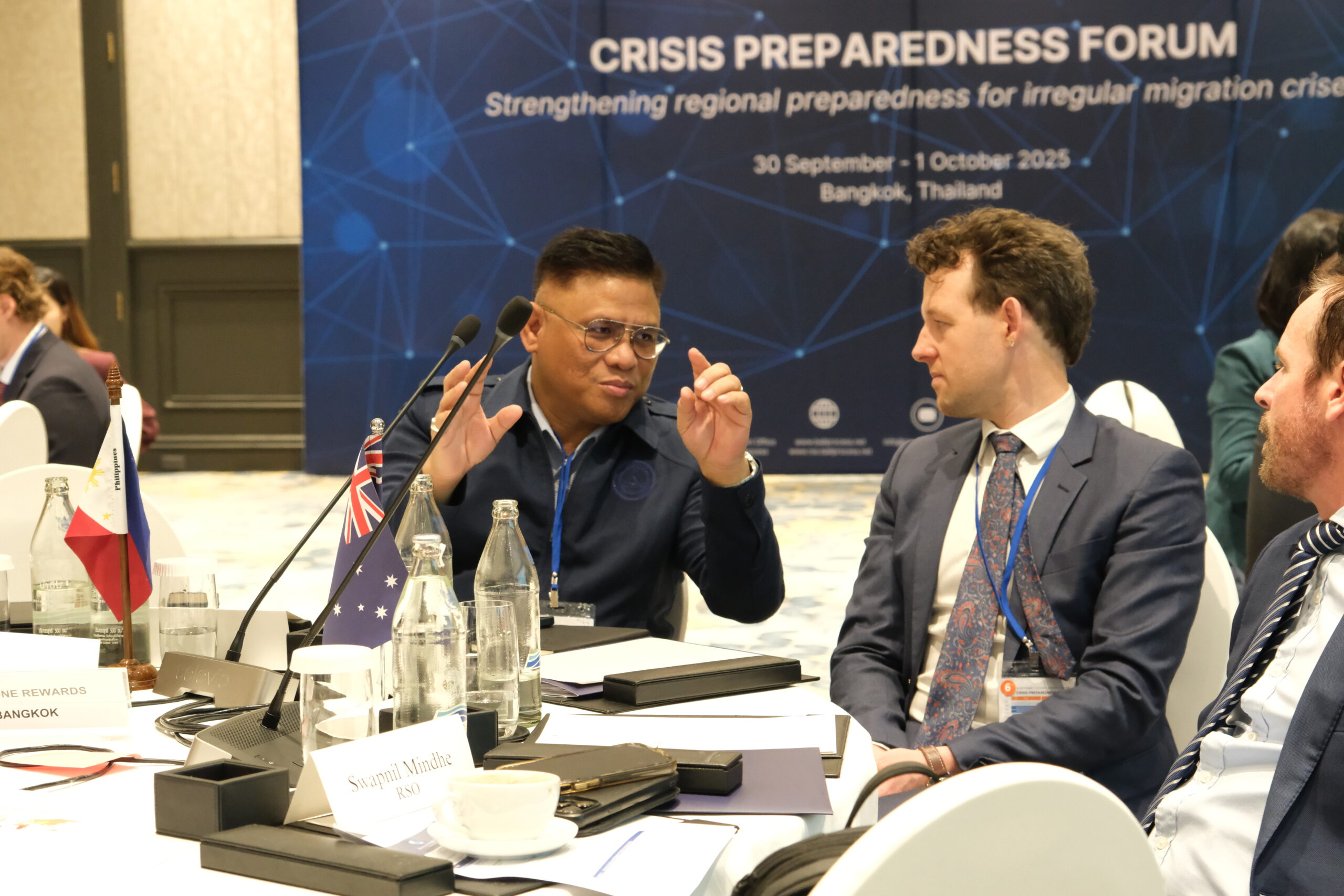 The Crisis Preparedness Forum, convened by the Regional Support Office of the Bali Process on People Smuggling, Trafficking in Persons and Related Transnational Crime (RSO) responded to this reality by bringing together 49 government officials and practitioners from 23 countries and international organisations to examine how Bali Process Members can strengthen preparedness and coordinated responses to emergency irregular migration situations linked to natural and humanitarian hazards.
The Crisis Preparedness Forum, convened by the Regional Support Office of the Bali Process on People Smuggling, Trafficking in Persons and Related Transnational Crime (RSO) responded to this reality by bringing together 49 government officials and practitioners from 23 countries and international organisations to examine how Bali Process Members can strengthen preparedness and coordinated responses to emergency irregular migration situations linked to natural and humanitarian hazards.
The two-day multistakeholder dialogue and capability building event sequenced futures analysis with applied crisis-planning methods and a tabletop scenario to stress-test coordination, roles and decision points. This event realised a Ministerial commitment from the former Minister for Home Affairs, the Hon Claire O’Neil MP who announced the convening of such a Forum in Adelaide in 2023 at the Eighth Bali Process Ministerial Conference.
Held in Bangkok, a key transit and coordination point for regional responses, the Forum combined foresight, policy dialogue, and hands-on simulation to test how governments respond when crises escalate. The International Federation of Red Cross and Red Crescent Societies (IFRC) grounded discussions in community realities and anticipatory action, while the International Organization for Migration (IOM) Regional Director for Asia and the Pacific, Iori Kato, highlighted how compound risks like climate, conflict and economic shocks reshape mobility.
The Australian National University’s Futures Hub led an interactive mapping of megatrends, helping delegates anticipate how today’s drivers could trigger tomorrow’s displacement crises. Australia’s National Emergency Management Agency (NEMA) then guided participants through a structured decision-making exercise, while IOM facilitated a scenario simulation that stress-tested coordination, information sharing, and protection screening at maritime and land borders. These exercises translated policy dialogue into practical learning on crisis readiness and cross-agency cooperation in-line with Article 13 of the Bali Process Adelaide Strategy for Cooperation.
“By investing strategically in foresight, preparedness, inclusive protection frameworks, and international partnerships, governments can build migration systems that are resilient, responsive, and people-centered.”
– Iori Kato, IOM Regional Director for Asia and the Pacific
Day 1: Anticipating future migration challenges
- Explored futures thinking and multi-hazard preparedness through interactive mapping and Pacific perspectives. Participants identified climate extremes and inequality as compounding migration risks, calling for stronger data integration, anticipatory coordination, and protection-sensitive planning. The day closed with a networking reception hosted by Australia’s Ambassador to Thailand, Dr Angela Macdonald.
Day 2: Applying preparedness frameworks in practice
- Centered on practical application, featuring Australia’s Crisis Appreciation and Strategic Planning (CASP) toolkit and an IOM-facilitated crisis scenario. Participants identified good practices in early emergency declaration and neighbour engagement, and priorities for surge logistics, resourcing, and interoperable standard operating procedures.

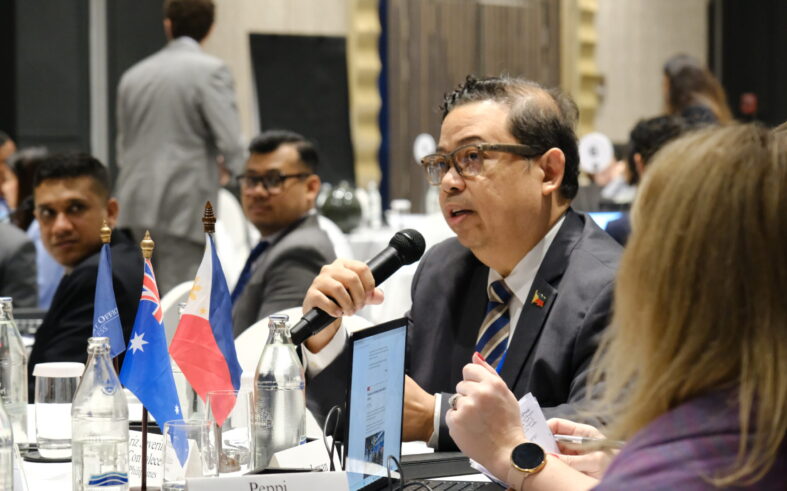

The Crisis Preparedness Forum complements the work of the Bali Process Task Force on Planning and Preparedness in supporting Members to strengthen crisis planning and coordinated response. Building on Forum outcomes, the RSO will consolidate lessons into a concise outcome report and integrate these priorities into forthcoming capability-building activities and work plan development.
The RSO’s newly launched Literature Mapping: Impact of Natural and Humanitarian Disasters on Irregular Migration, and Irregular Labour Migration, produced in collaboration with the Australian National University Migration Hub, identifies knowledge gaps and priority areas for understanding how disasters exacerbate irregular migration which directly complement findings from the Crisis Preparedness Forum.
Follow-up engagement will reinforce practical, forward-looking cooperation to address Forum insights on early warning, interoperable standard operating procedures, and protection-sensitive border management, and will also inform the Fourth RSO Border Forum and future technical cooperation with Member States, as set out in the Bali Process Adelaide Strategy for Cooperation.


